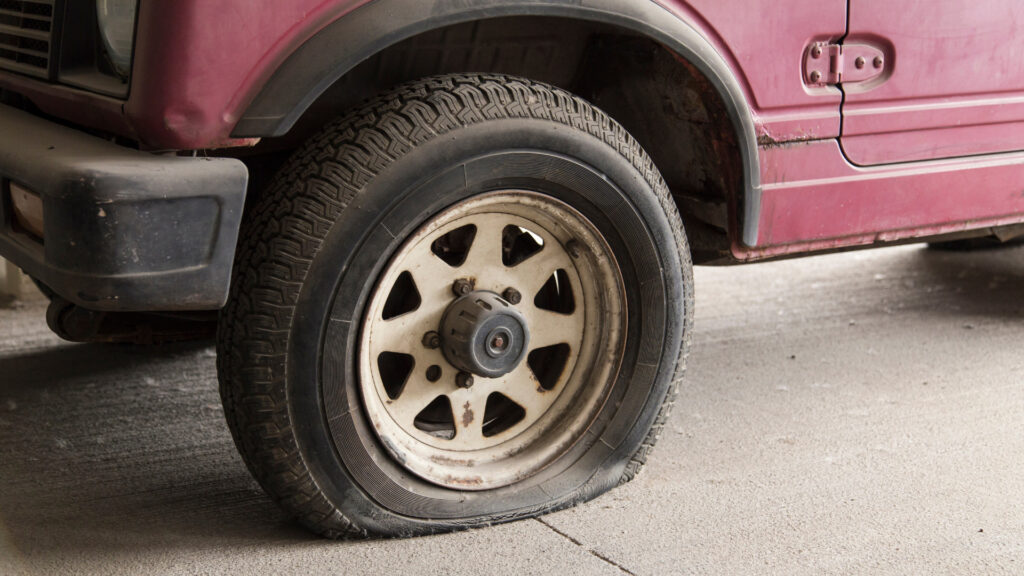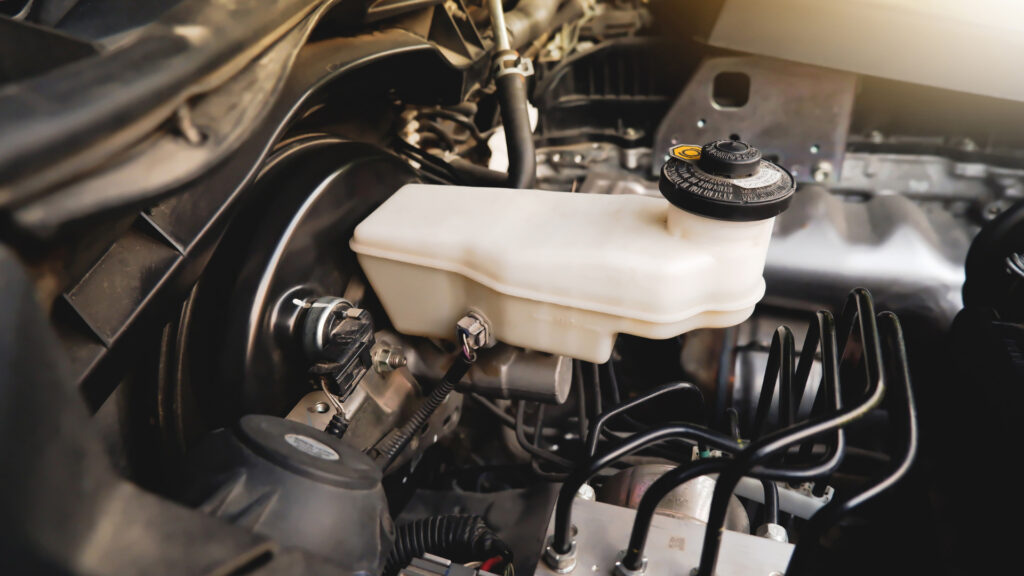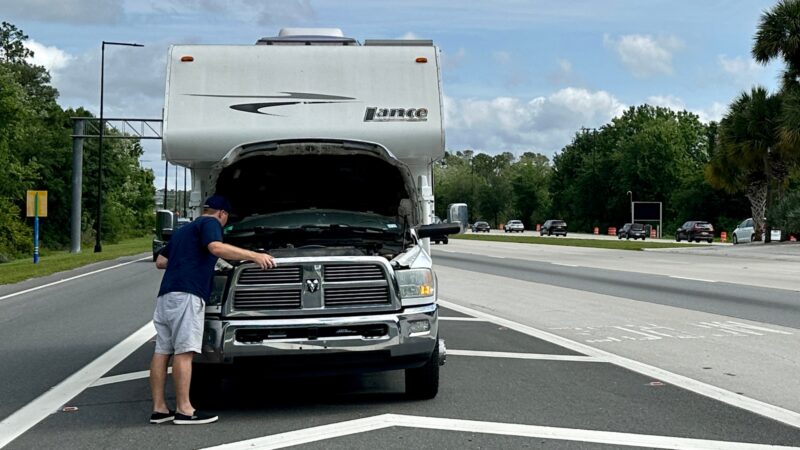Table of Contents Show
Country music stars can turn a truck breakdown into their next #1 hit. However, for the rest of us ordinary folks, it’s nothing more than a bad day.
If you’ve ever experienced a breakdown, you understand the challenges of getting stuck on the side of the road. We’ve been there a time or two, and it’s not something we’d wish upon anyone.
Today, we’re looking at some of the most common truck breakdowns and how to avoid them. Buckle up, and let’s get started!
How Often Do Trucks Breakdown?
A modern, well-maintained truck should go 100,000 miles without experiencing a major breakdown.
However, even if an owner follows the recommended maintenance schedule, things beyond their control happen. Defects in parts or their installation can cause a severe issue in a vehicle.
Additionally, driving habits can play a significant role in the longevity and reliability of a vehicle. If you drive it like you stole it, it’s only a matter of time before something breaks or wears out. However, cautious and smooth accelerating and braking can extend the life of a vehicle.
What Should You Do If Your Truck Has a Breakdown?
You must first turn on your hazard lights if your truck breaks down. This can help alert other drivers that you’re experiencing an issue. They can move out of the way or adjust their driving to accommodate you and your situation.
After turning on your flashers, move to the shoulder of the road. Be on the lookout for the safest possible place to stop. If you can make it without putting yourself in danger or causing further damage to your vehicle, do it.
However, you could do substantial damage or create a dangerous situation if you continue to push your car.
Once pulled over on the side of the road, you’ll want to remain in your vehicle with your seatbelt on. Assess the situation as best as you can and call for help. Your first phone call could be to a spouse, a friend, or your roadside assistance. Do whatever you can to stay calm and remain visible until help arrives.

What Are the Most Common Truck Breakdowns?
You can experience several common truck breakdowns. While none of these are ideal, some are better than others. Let’s look at some of the most common issues and how to avoid them.
Flat Tires
One of the most common truck breakdowns drivers experience is due to flat tires. These can occur for many reasons, including road debris, wear and tear, underinflation, overloading, and valve stem failures. Depending on the failure, it could happen while you’re on the road or your car sits parked.
Cracks and small leaks allow air to slowly leak from your tire. It could be several days before you notice the flat tire. You’ll need to know how to change a tire and put on your spare in these situations. If you don’t have a spare, call your roadside assistance provider or a tow truck.
How to Avoid Flat Tires:
The best way to avoid flat tires is to maintain your tires. This means inspecting them regularly, keeping them at the proper pressure, rotating them at the appropriate intervals, and not overloading them. It’s also important to consider how you drive.
Spinning your tires at a stoplight may have been cool in high school, but not when you’re the one buying your tires. Be mindful of your braking, as sudden or hard braking can put extra stress on your tires.
Always watch for objects on the road and be careful when driving through construction areas. You never know what kind of debris is waiting on the road for your tires.

Battery Problems
One of the primary functions of a car battery is starting the vehicle. This is typically when most people discover they have a problem with their battery.
They’ll go to start their vehicle, and it won’t turn over. This could be due to many factors. Typically, it’s from leaving the keys in the on position or leaving your lights on for extended periods.
However, several other issues can cause battery problems. The most common things include corroded terminals, faulty alternators, extreme temperatures, damaged battery cables, an electrical system failure, or a complete battery failure.
Extreme cold temperatures will often put a failing battery out of its misery. It’s normal for batteries to fly off store shelves once the temperatures drop.
How to Avoid Battery Problems:
Unfortunately, car batteries only last so long. When they’re done, they’re done. Your best hope is that you bought a warranty and your battery is within the warranty. If it is, they’ll likely replace it for free and send you on your way. If not, you’ll probably be buying a new battery.
To avoid battery issues, keep your battery connections tight and keep the terminals clean. You want the best possible connection, and any corrosion or other debris can hinder the flow of electricity.
Glance at them now and then and clean them as needed. Just make sure you disconnect the cables from the battery first.
Another way to avoid a battery problem is to drive your vehicle regularly. The battery will naturally lose its charge over time. Driving will help recharge the battery and keep it charged. Letting a battery sit for an extended period with no charge can cause permanent damage and truck breakdown.
Engine Overheating
Most vehicles have a cluster of gauges on the dash that the driver can see. Watching the temperature gauge climb can be stressful. If you’re not careful, you could seriously damage your vehicle if the engine gets too hot.
This often occurs due to coolant leaks, a faulty thermostat, a radiator issue, a water pump failure, etc. While replacing parts isn’t fun, you’ll be in for a surprise if you must replace the engine. In some instances, it is better to get a new vehicle.
How to Avoid Engine Overheating:
If you want to avoid engine overheating, doing regular maintenance checks is a good idea. This includes inspecting the cooling system and your coolant levels.
As with most car-related issues, catching them early is essential. Leaks can be a sign of a growing problem with your vehicle.
Immediately address any leaks and stop driving if you notice your engine temperature rising. If it’s overheating, there’s a reason why, and you need to get to the bottom of it. Don’t let a minor issue grow into a bigger problem.
Keep in Mind: Ever wondered what happens when you put diesel in a gas engine? Click to see what happens!
Fuel System Problems
Unless you’re driving an electric car, you need fuel. Whether it’s gasoline or diesel, both fuel systems can experience problems. Clogged fuel filters, faulty fuel pumps, dirty fuel injectors, or leaks in the fuel line are just a few of the most common issues.
Any problems with your fuel system can result in poor engine performance, reduced efficiency, and possibly even total failure. You’ll want to do all you can to avoid fuel system problems with your vehicle.
How to Avoid Fuel System Problems:
Following the manufacturer’s recommended maintenance schedule is the best way to avoid fuel system problems or truck breakdowns. Staying on top of maintenance can catch issues when they start, often before they become serious problems.
When filling up your tank, ensure you get high-quality fuel from a reputable service station. If you start to notice issues, inefficiencies, or trouble starting your engine, look into it. A qualified mechanic will likely be able to help diagnose the problems.
Electric System Failures
A vehicle’s electrical system runs just about everything inside of it. It’s not just the windows, locks, and seats that rely on the electric system. The starter, alternator, ignition system, lights, display screens, and many safety features depend on it.
These failures can result from something as simple as a dead battery or blown fuse. However, it could also be due to components like the starter, spark plugs, or ignition coils going bad. When they do, you’ll need to replace them. If you’re inexperienced with vehicles, hire someone to do it for you so it gets done right.
How to Avoid Electric System Failures:
Proper battery maintenance is an excellent place to start if you want to avoid these failures. Replace your battery as needed, typically every three to five years. In addition, always use high-quality components and parts for repairs. Trying to save a few bucks can end up costing you.
Moisture is an electric system’s worst nightmare. You want all of your components to stay dry and away from water. This can lead to corrosion and short circuits throughout the system.
Finally, keep your connections tight and secure. If you notice any cuts in the protective coatings or frayed wires, address them immediately. Mice and other pests can make a snack out of them and cause a severe problem for your truck or a breakdown.
Pro Tip: When you own an RV, you need to understand your RV electrical panel to safely manage your rigs electricity!
Brake System Failures
As you’re likely aware, your brake system is essential to your vehicle. You’ll have a hard time coming to a complete stop if there are any problems. Unfortunately, brake systems have several important parts that must all work together.
Problems can occur due to brake fluid leaks, worn brake pads or shoes, brake line corrosion, etc. None of these are ideal and something you can’t take lightly. You must be able to stop quickly and efficiently when necessary.
How to Avoid Brake System Failures:
If you hear noises or notice any issues when applying your brakes, get them inspected. These issues can appear as strange noises, increased stopping distances, or how the brake pedal feels.
Get your vehicle to the shop to have the brake system thoroughly inspected. Typically, these types of failures only get worse with time and can lead to a truck breakdown.

Transmission Troubles
The transmission is another vital component of a vehicle. Drivers often notice issues like slipping, leaks, overheating, or delayed shifting. You may have to call a tow vehicle if your transmission fails to engage. The longer you wait to take action, the worse the problem will become.
How to Avoid Transmission Troubles:
We may sound like a broken record, but regular maintenance is the best way to avoid transmission troubles. This can significantly help improve a transmission’s lifespan and diagnose or fix specific issues.
Ensure you’re using the correct transmission fluid, and check the levels regularly. If you’re noticing leaks, it’s not something you can ignore. Additionally, avoid overloading your vehicle or towing beyond its capacity. This can increase the wear and tear on the transmission and drastically reduce its life.
If it’s cold, give your engine and transmission time to warm up. This doesn’t mean leaving your vehicle idling for 20 to 30 minutes. However, it does mean avoiding hard accelerations while it’s still cold.
Steer Clear of a Truck Breakdown
A truck breakdown isn’t something any driver wants to experience. Getting stranded on the side of the road or in a parking lot can be a bad day.
Regularly maintaining your vehicle and taking action immediately when an issue occurs can go a long way. Too many drivers procrastinate repairs or maintenance, making it worse for them and their wallets.
Have you ever experienced a truck breakdown?






